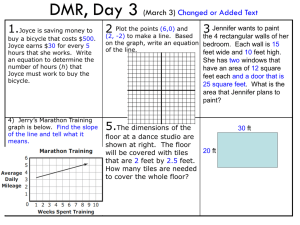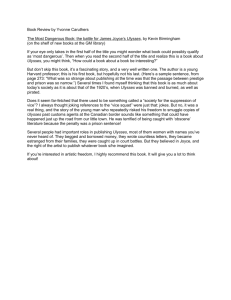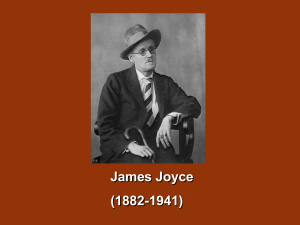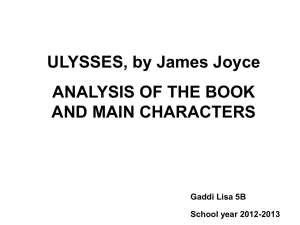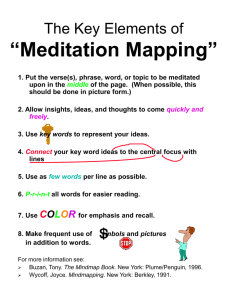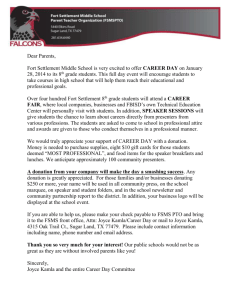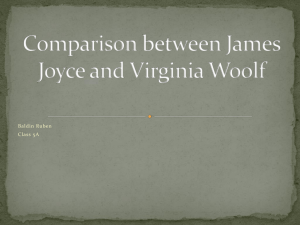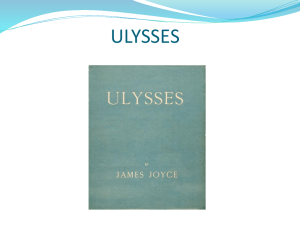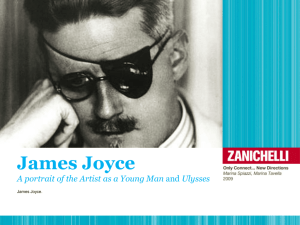Syllabus
advertisement
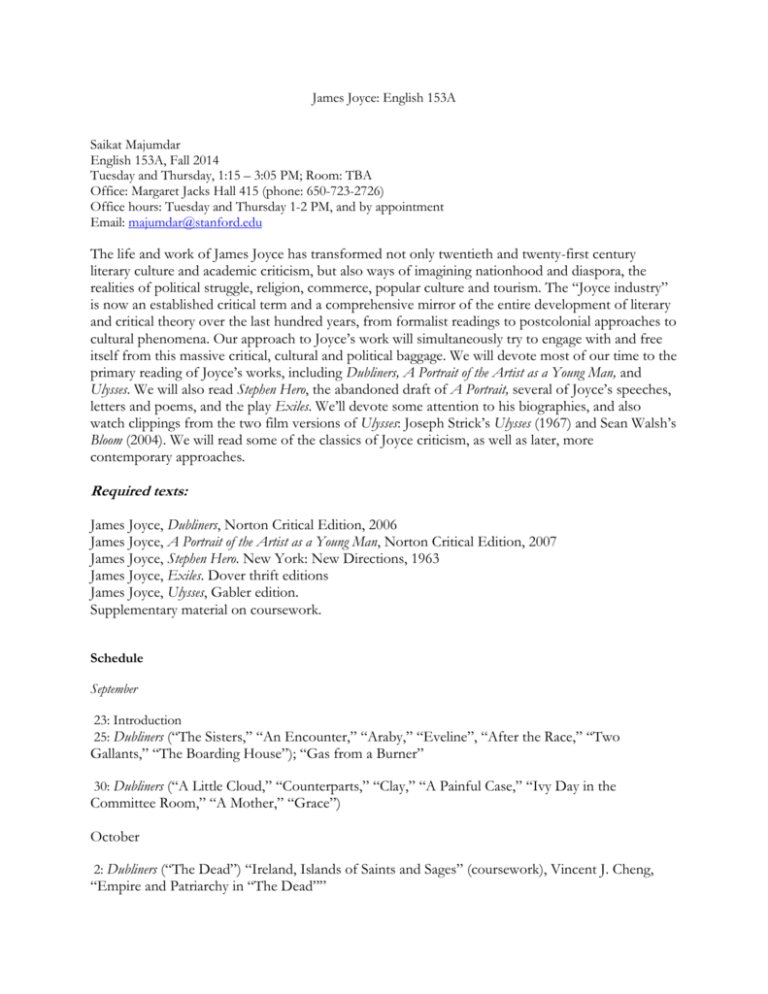
James Joyce: English 153A Saikat Majumdar English 153A, Fall 2014 Tuesday and Thursday, 1:15 – 3:05 PM; Room: TBA Office: Margaret Jacks Hall 415 (phone: 650-723-2726) Office hours: Tuesday and Thursday 1-2 PM, and by appointment Email: majumdar@stanford.edu The life and work of James Joyce has transformed not only twentieth and twenty-first century literary culture and academic criticism, but also ways of imagining nationhood and diaspora, the realities of political struggle, religion, commerce, popular culture and tourism. The “Joyce industry” is now an established critical term and a comprehensive mirror of the entire development of literary and critical theory over the last hundred years, from formalist readings to postcolonial approaches to cultural phenomena. Our approach to Joyce’s work will simultaneously try to engage with and free itself from this massive critical, cultural and political baggage. We will devote most of our time to the primary reading of Joyce’s works, including Dubliners, A Portrait of the Artist as a Young Man, and Ulysses. We will also read Stephen Hero, the abandoned draft of A Portrait, several of Joyce’s speeches, letters and poems, and the play Exiles. We’ll devote some attention to his biographies, and also watch clippings from the two film versions of Ulysses: Joseph Strick’s Ulysses (1967) and Sean Walsh’s Bloom (2004). We will read some of the classics of Joyce criticism, as well as later, more contemporary approaches. Required texts: James Joyce, Dubliners, Norton Critical Edition, 2006 James Joyce, A Portrait of the Artist as a Young Man, Norton Critical Edition, 2007 James Joyce, Stephen Hero. New York: New Directions, 1963 James Joyce, Exiles. Dover thrift editions James Joyce, Ulysses, Gabler edition. Supplementary material on coursework. Schedule September 23: Introduction 25: Dubliners (“The Sisters,” “An Encounter,” “Araby,” “Eveline”, “After the Race,” “Two Gallants,” “The Boarding House”); “Gas from a Burner” 30: Dubliners (“A Little Cloud,” “Counterparts,” “Clay,” “A Painful Case,” “Ivy Day in the Committee Room,” “A Mother,” “Grace”) October 2: Dubliners (“The Dead”) “Ireland, Islands of Saints and Sages” (coursework), Vincent J. Cheng, “Empire and Patriarchy in “The Dead”” 7: Stephen Hero (pages 3-75) 9: Stephen Hero (pages 76-163) Excerpts from Mary and Padraic Colum, Our Friend James Joyce on coursework; excerpts from Critical Writing on coursework (“Drama and Life,” “Aesthetics”) Letter to Henrik Ibsen, March 1901 14: Stephen Hero (pages 163-253) 16: A Portrait of the Artist as a Young Man (pages 5-89 of Norton Critical Edition); Michael Davitt, “Death of Parnell – Appreciation” 21: A Portrait of the Artist as a Young Man (pages 89-151 of Norton Critical Edition): Hugh Kenner, “Joyce’s Portrait – A Reconsideration” 23: A Portrait of the Artist as a Young Man (pages 151-224 of Norton Critical Edition): Marion Eide, “The Woman of Ballyhoura Hills: James Joyce and the Politics of Creativity” 28: Exiles 30: Midterm examination November 4: Ulysses, “Telemachus”, “Nestor”, “Proteus”; Joyce’s letter to Harriet Shaw Weaver, 24 June 1901 6: Ulysses, “Calypso,” “Lotus Eaters,” “Hades,” “Lestrygonians,” “Scylla and Charybdis,” “Wandering Rocks”; Edmund Wilson, “James Joyce” 11: Ulysses; “Nausicaa,” “Eumaeus”; Joyce’s letter to T.S. Eliot, 1 January, 1932,; Screening: Excerpts from Joseph Strick, Ulysses (1967) 13: Ulysses, “Ithaca,” “Penelope”; Screening: Excerpts from Sean Walsh, Bloom (2004) 18: Multimedia/spatial history 20: Review & workshop 24: Thanksgiving break, no class 27: Thanksgiving break, no class December 2: Final paper conference 4: Final paper conference
